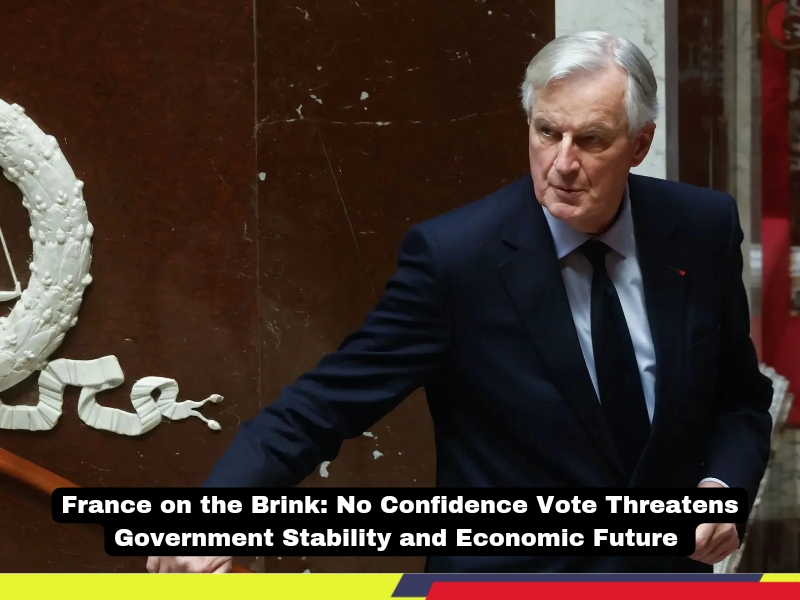France stands at a political crossroads as Prime Minister Michel Barnier faces a critical no-confidence vote in Parliament. The outcome could destabilize the government, leave the country without an approved budget, and send ripples through its already fragile economy.
The Stakes: Government and Budget in Limbo
The no-confidence vote, prompted by mounting dissatisfaction with Barnier’s leadership and his budget proposals, could force the prime minister’s resignation. If that happens, France could enter the new year without a functioning government or a finalized budget.
While the situation may appear dire, France’s Constitution provides mechanisms to prevent a full-blown crisis. For example, existing laws allow for a degree of continuity in governance, ensuring civil servants are paid and essential government functions remain operational. However, this doesn’t mean France would escape unscathed.
Economic Fallout
The uncertainty surrounding the no-confidence vote has already rattled financial markets. Investors are pulling out of French stocks and bonds, causing borrowing costs to rise. Without a stable government and budget, France risks further economic instability, undermining its position in Europe’s already volatile economic landscape.
The potential fallout extends beyond markets. Delays in implementing the budget could stall critical public projects, and political instability could erode public confidence in the government.
A Constitutional Crisis or Temporary Disruption?
Despite the looming threats, a constitutional crisis akin to an American-style government shutdown is unlikely. France’s institutional framework allows for a caretaker government to manage day-to-day affairs until a new administration is formed. However, this stopgap measure is not a long-term solution.
Political analysts suggest that Barnier’s government could still survive the no-confidence vote, but even a narrow victory would highlight the fractures within the ruling coalition. If the government collapses, President Emmanuel Macron could appoint a new prime minister or dissolve Parliament entirely, triggering new elections.
What’s Next for France?
The next few days will be critical in determining the path forward for France. A loss for Barnier could set off a cascade of political and economic challenges, but even survival will leave unresolved tensions within his government.
For the French people, the immediate concern is stability—both political and economic. For the broader European community, France’s situation underscores the fragility of governance in an era marked by polarization and economic uncertainty.
As the no-confidence vote looms, the nation holds its breath, bracing for a decision that could shape its future for years to come.




